ISAPP is your source for science-based resources, created and reviewed by experts in the field.
Looking for information you can trust on probiotics, prebiotics, synbiotics, postbiotics, fermented foods and more? Check out ISAPP’s resources for a wealth of accessible, reliable information specific to the field, and search according to the format or topic you need.
1-32 of 203 results
-
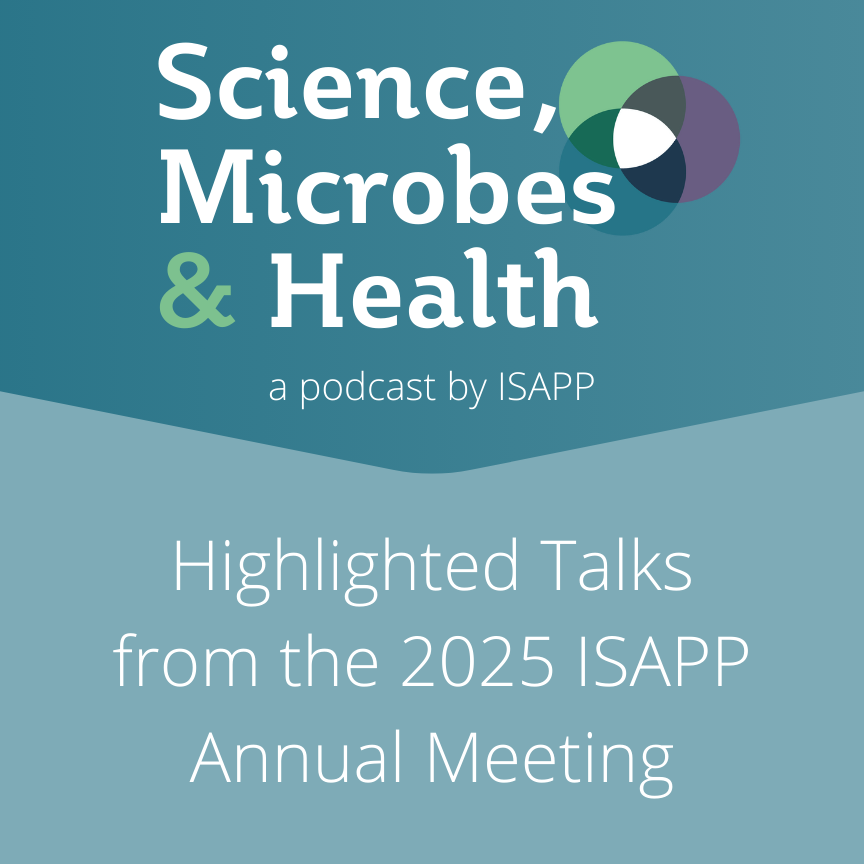
Highlighted Talks from the 2025 ISAPP Annual Meeting
In this special episode, ISAPP’s Executive Director Marla Cunningham highlights ISAPP’s annual meeting, held in Banff, Canada in July 2025. Four speakers join the podcast to describe their talks from the meeting: Episode abbreviations and links: About our speakers: Carolina Tropini, University of British Columbia, Canada Dr. Carolina Tropini is an Assistant Professor at the… -

ISAPP welcomes two new scientists to its board of directors
The ISAPP board of directors is pleased to welcome two prominent scientists and frequent ISAPP collaborators to its ranks: Prof…. -
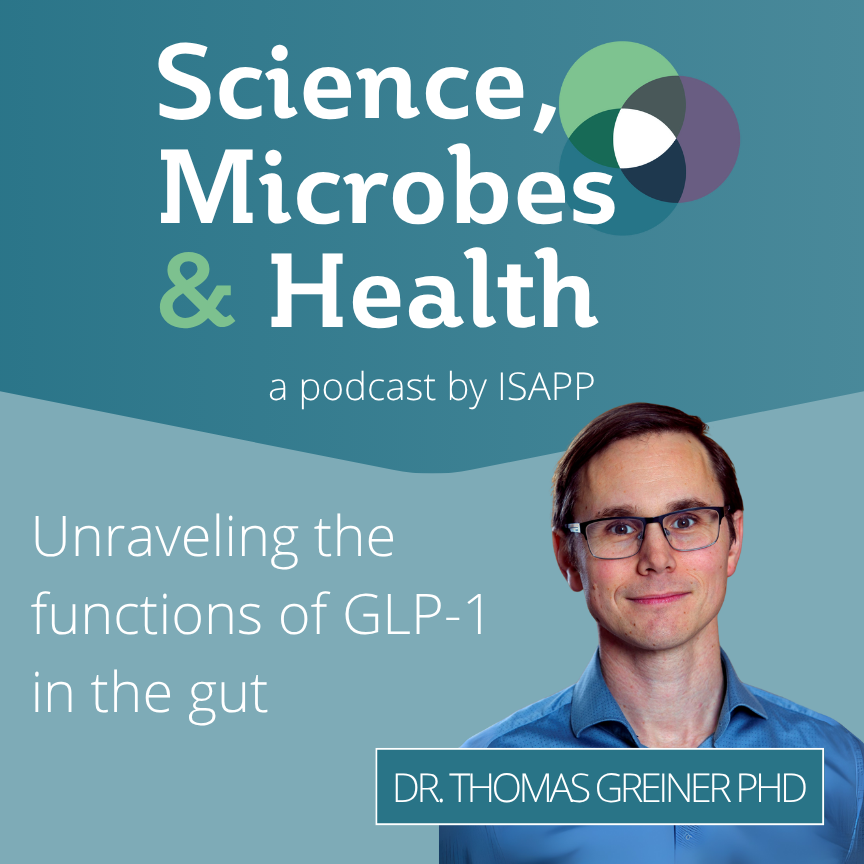
Unraveling the functions of GLP-1 in the gut, with Dr. Thomas Greiner PhD
This episode features Dr. Thomas Greiner PhD from the University of Gothenburg (Sweden), speaking about the various functions of GLP-1 in the gut, and the role of gut microbes in GLP-1 production, with ultimate effects on host health. He noted that GLP-1 is produced by enteroendocrine cells called L-cells, both in the small intestine and… -
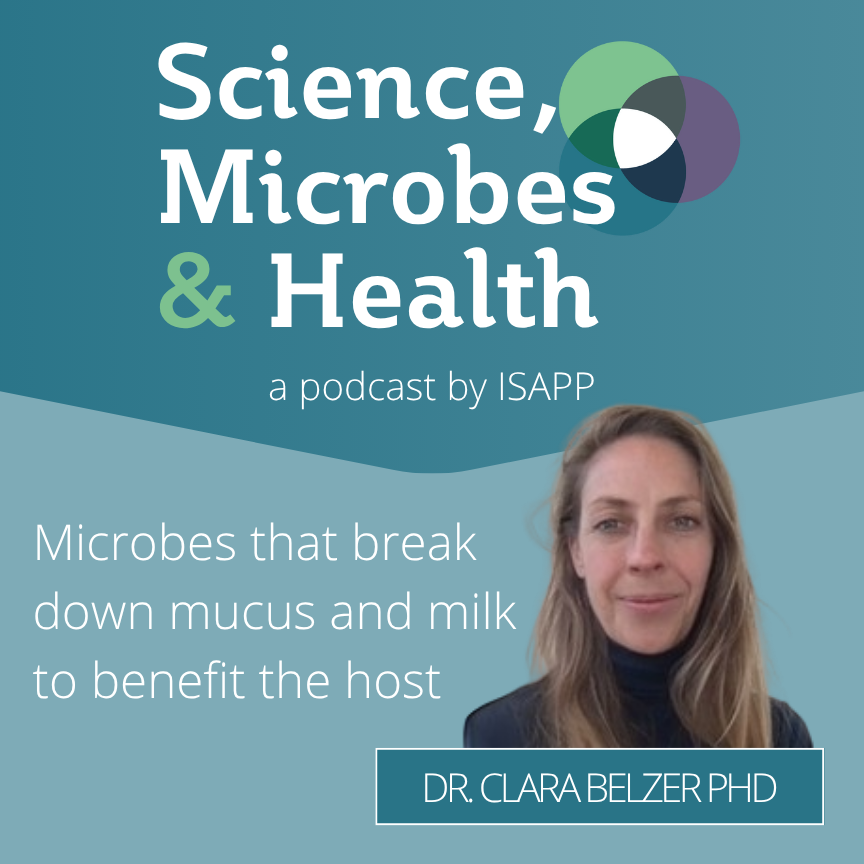
Archive Highlight: Microbes that break down mucus and milk to benefit the host, with Dr. Clara Belzer PhD
We discuss microbes, mucus, and milk with Dr. Clara Belzer PhD from Wageningen University in the Netherlands in this episode. Dr. Belzer, a molecular geneticist, specializes in studying the microorganisms that are equipped to break down the glycans in mucus and human milk within the host environment. Key topics from this episode: Episode abbreviations and links: About… -
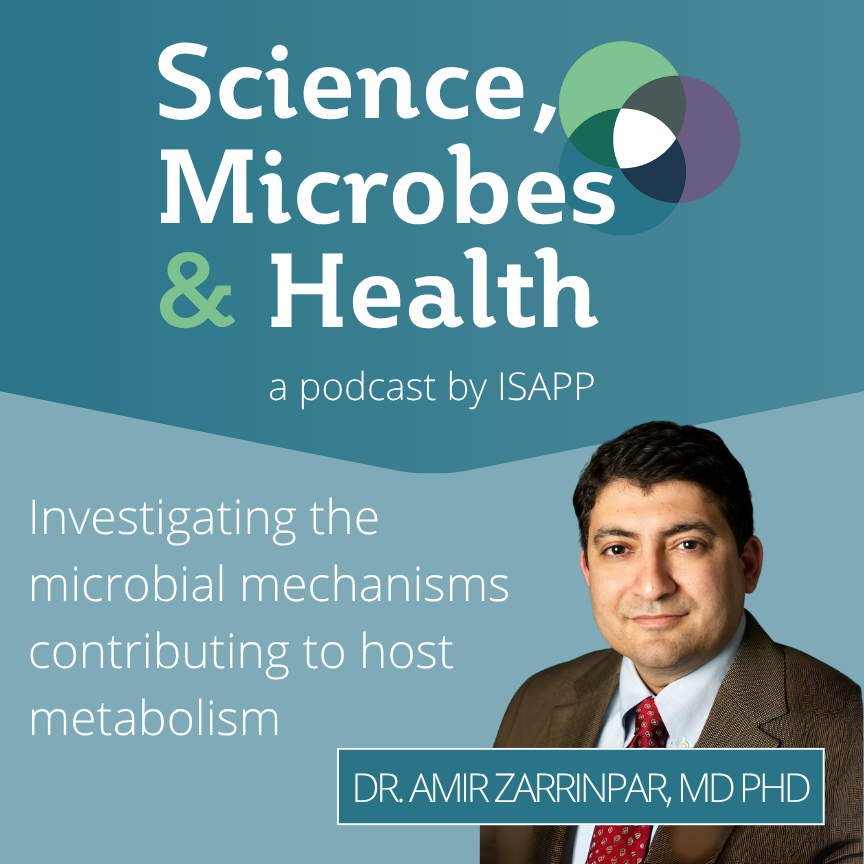
Investigating the microbial mechanisms contributing to host metabolism, with Dr. Amir Zarrinpar, MD PhD
This episode features Dr. Amir Zarrinpar, MD PhD, from UC San Diego (USA) speaking about his work on circadian biology and host metabolism, and what’s currently known about microbial mechanisms. Dr. Zarrinpar explains that in mouse models, restricting feeding to the nocturnal (awake) period is important for their metabolic and overall health. When mice eat… -
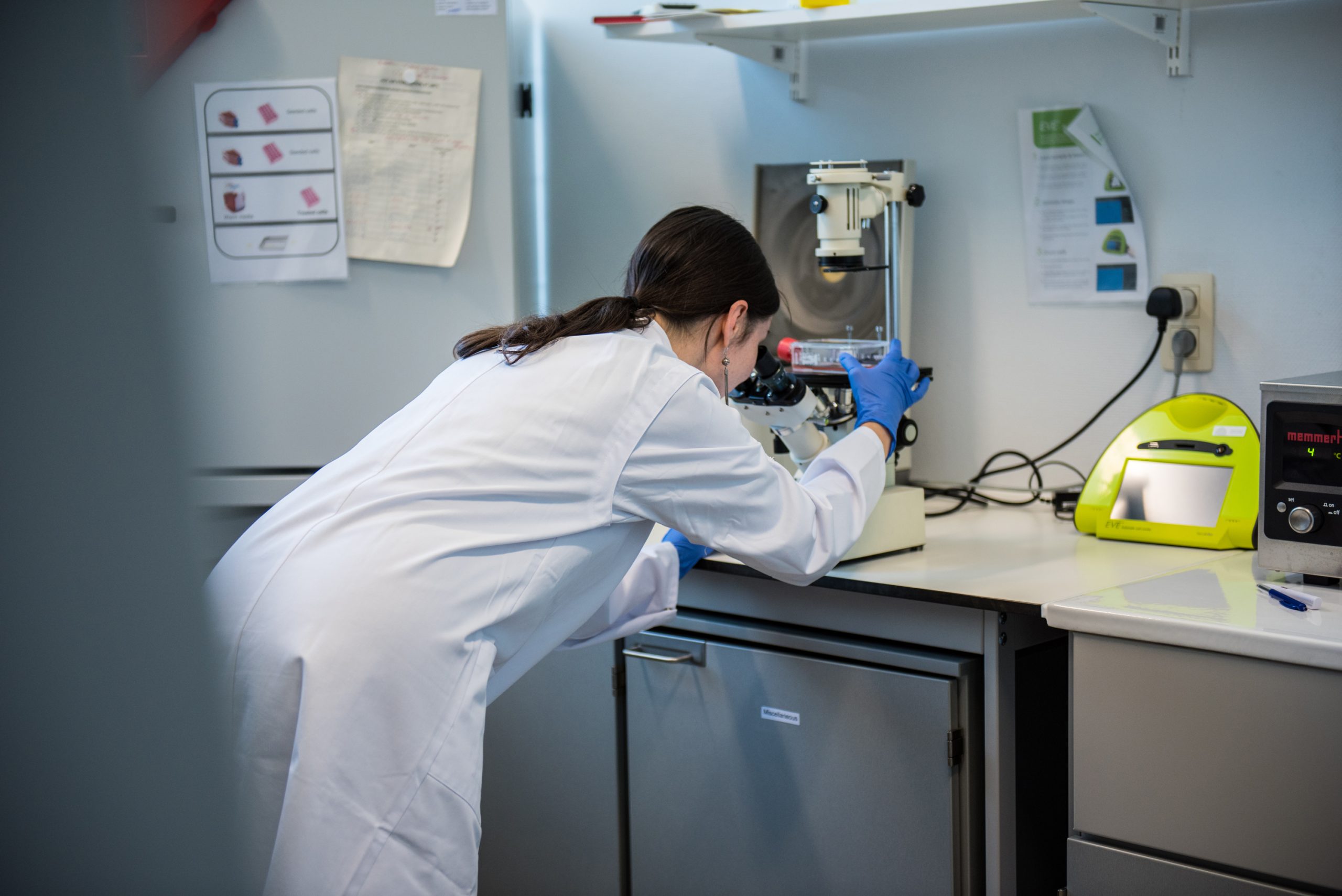
Microbiome endpoints in clinical trials for biotics – where do we stand and what have we learnt?
I’m sure you’ve read the results of trials similar to these (fictional) conclusions: ‘Our findings showed an increase in Faecalibacterium and Enterococcus, two… -
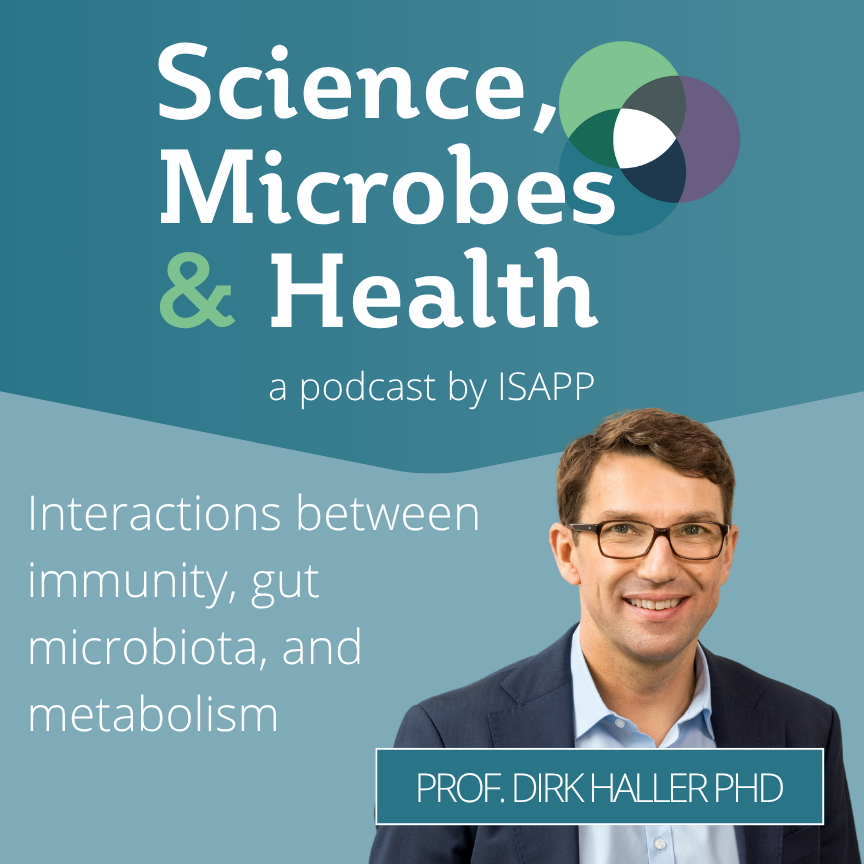
Interactions between immunity, gut microbiota, and metabolism, with Prof. Dirk Haller PhD
This episode features Prof. Dirk Haller from Technical University of Munich (Germany) speaking about his work in the field of nutritional immunology, trying to unravel how immunity and gut microbiota interact with metabolism, ultimately impacting the emergence of chronic diseases. He focuses on how microbe-host interactions in the gut impact inflammatory or tumorigenic responses –… -
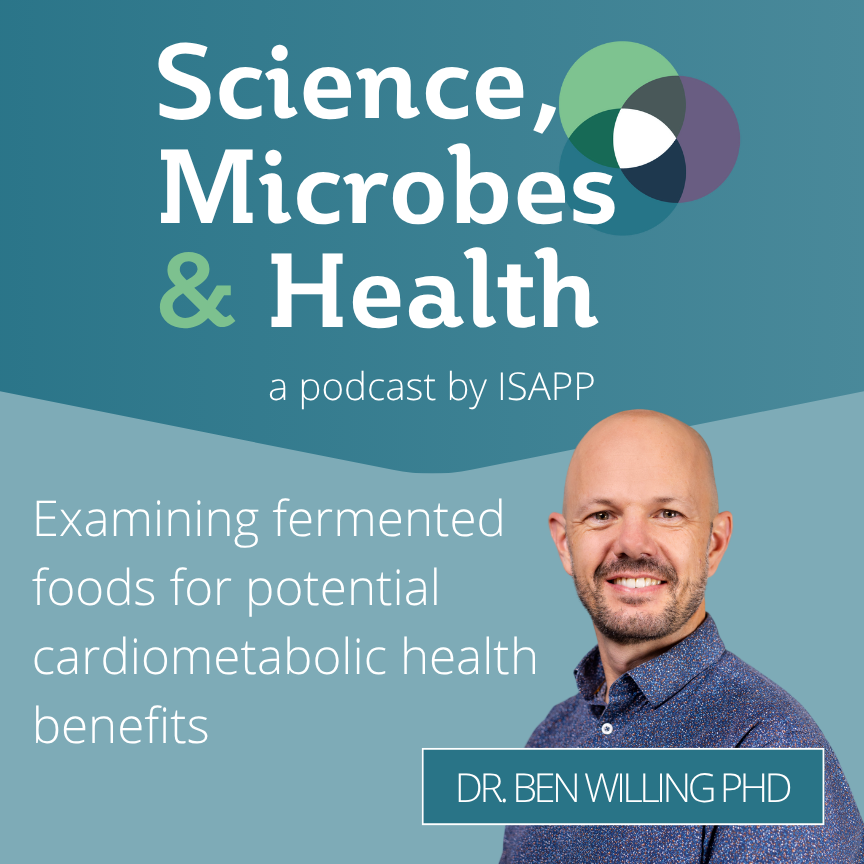
Examining fermented foods for potential cardiometabolic health benefits, with Prof. Ben Willing PhD
This episode features Prof. Ben Willing PhD from the University of Alberta, Canada, speaking about his work investigating fermented foods such as kefir for potential cardiometabolic health benefits. The microorganisms associated with fermented foods are not standardized – for example, traditional kefirs have some microorganisms in common, but other microorganisms that are present sporadically. Moreover, kefir… -
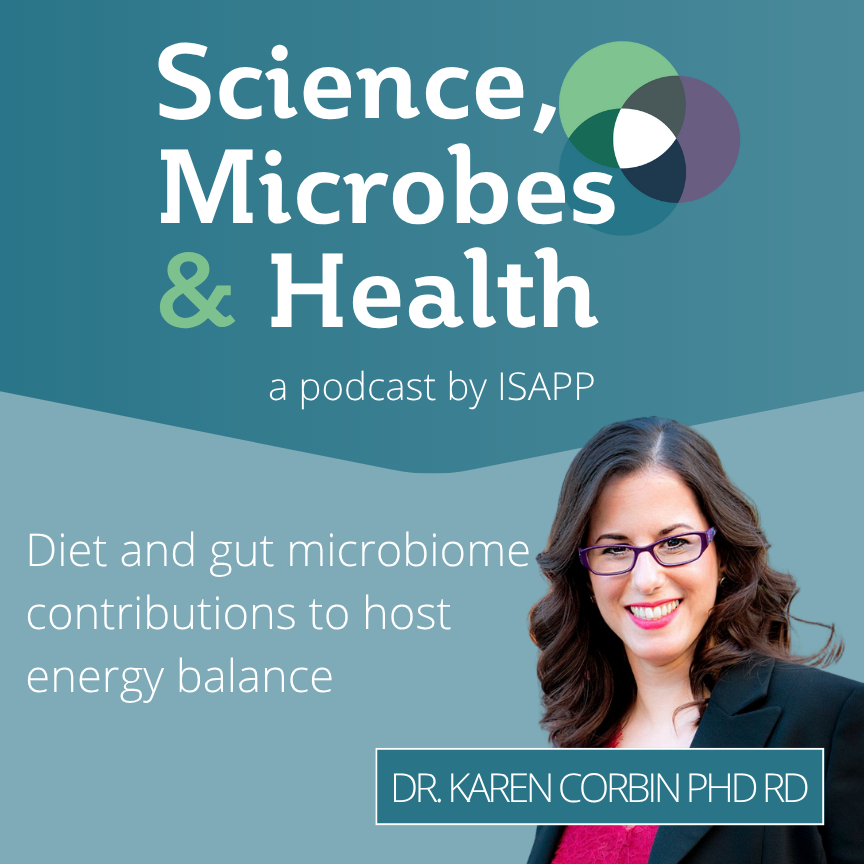
Diet and gut microbiome contributions to host energy balance, with Dr. Karen Corbin PhD RD
This episode features Dr. Karen Corbin PhD RD from AdventHealth Translational Research Institute (USA), speaking about how the triad of diet, gut microbiome, and host characteristics contribute to energy balance as well as metabolic diseases. From the perspective of host physiology, she explores how to use diet to remodel the gut microbiome to impact energy… -
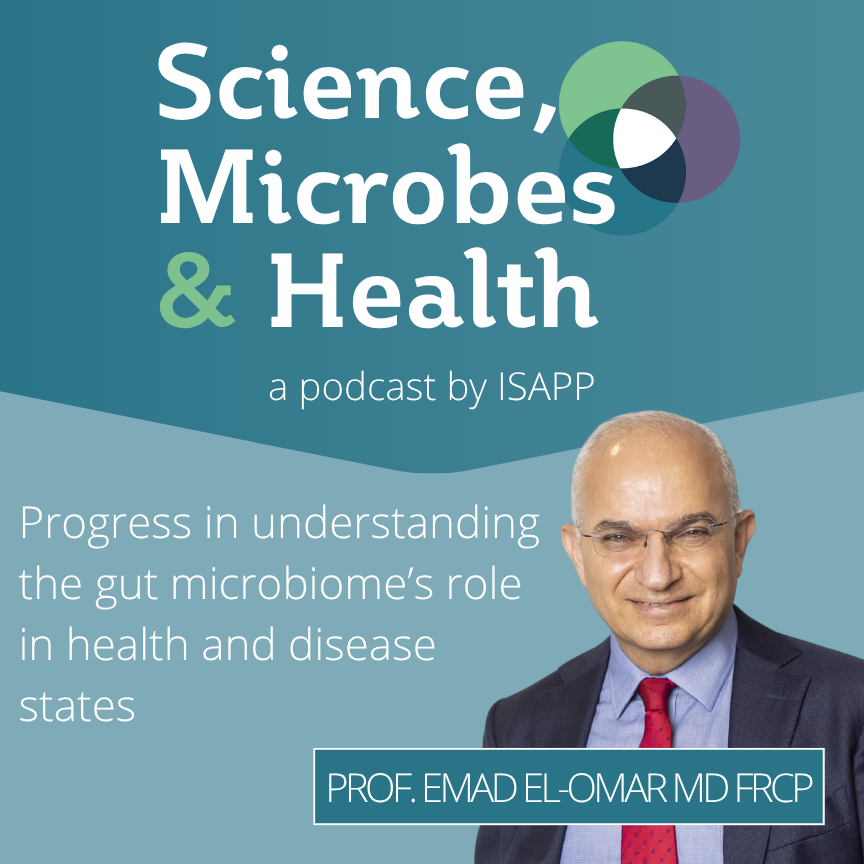
Progress in understanding the gut microbiome’s role in health and disease states, with Prof. Emad El-Omar MD FRCP
This episode features Prof. Emad El-Omar MD FRCP from the University of New South Wales in Sydney, Australia, speaking about a recent paper exploring the healthy microbiome concept, as well as the latest research on how the gut microbiome contributes to the pathophysiology of several diseases. Prof. El-Omar talked about research on H. pylori-induced disease in… -
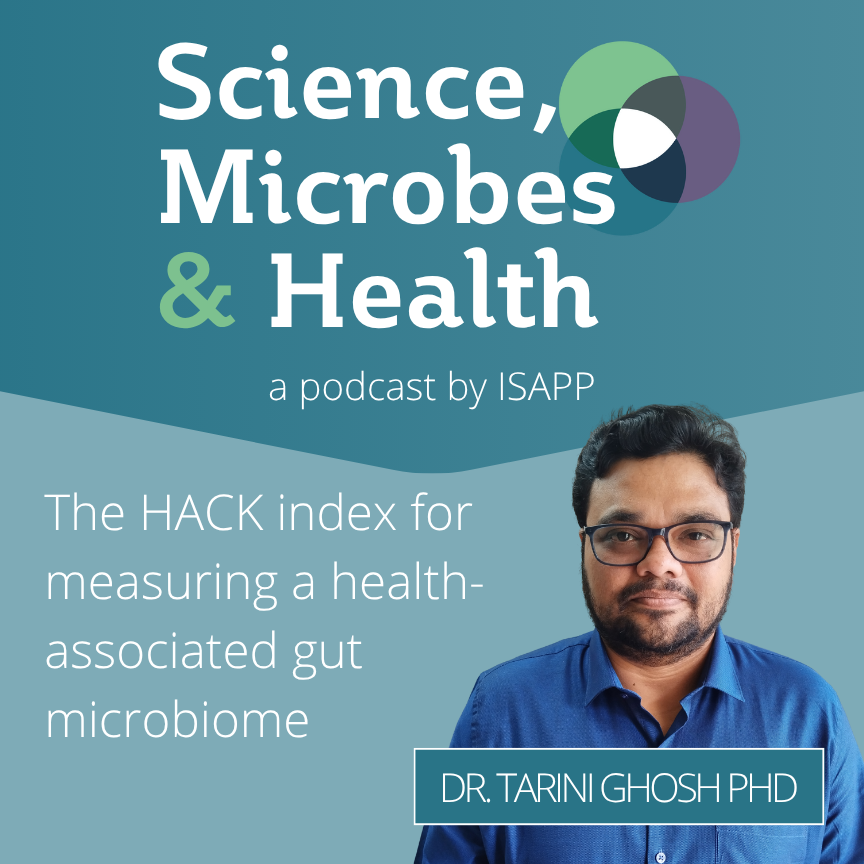
The HACK index for measuring a health-associated gut microbiome, with Dr. Tarini Ghosh PhD
This episode features computational microbiologist Dr. Tarini Ghosh PhD from Indraprastha Institute of Information Technology (Delhi, India) speaking about his recently published paper that proposes a novel Health-Associated Core Keystone (HACK) index for measuring a healthy microbiome. To create the index, the group used a huge volume of sequence data – over 201 terabytes –… -
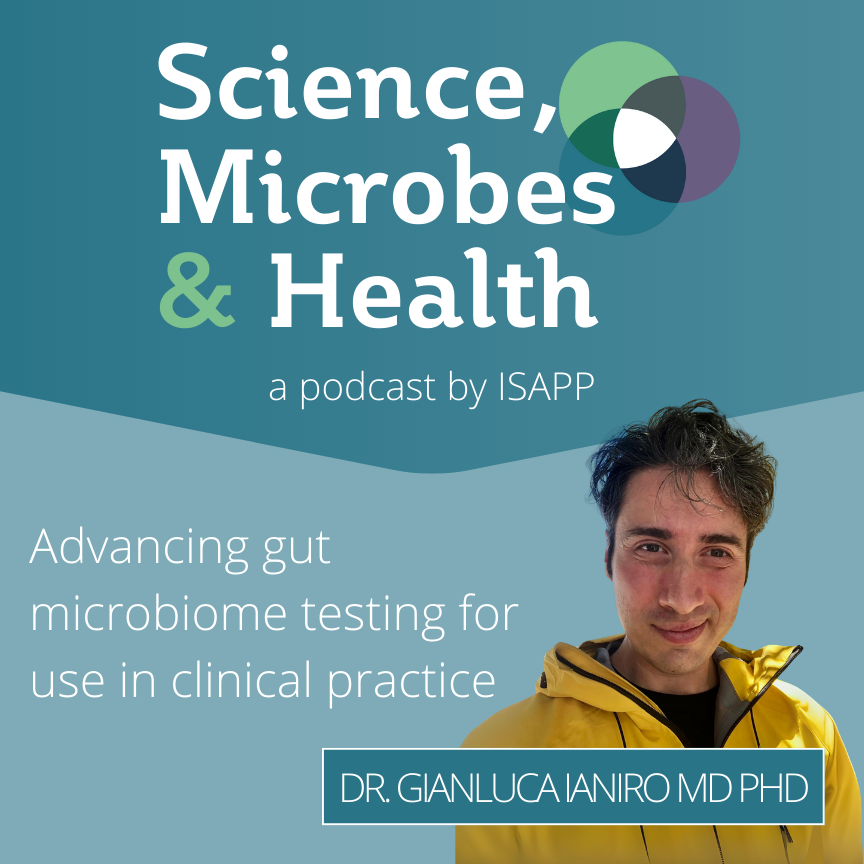
Advancing gut microbiome testing for use in clinical practice, with Dr. Gianluca Ianiro MD PhD
In this episode, Dr. Gianluca Ianiro MD PhD speaks about how to advance gut microbiome testing for use in medicine. -
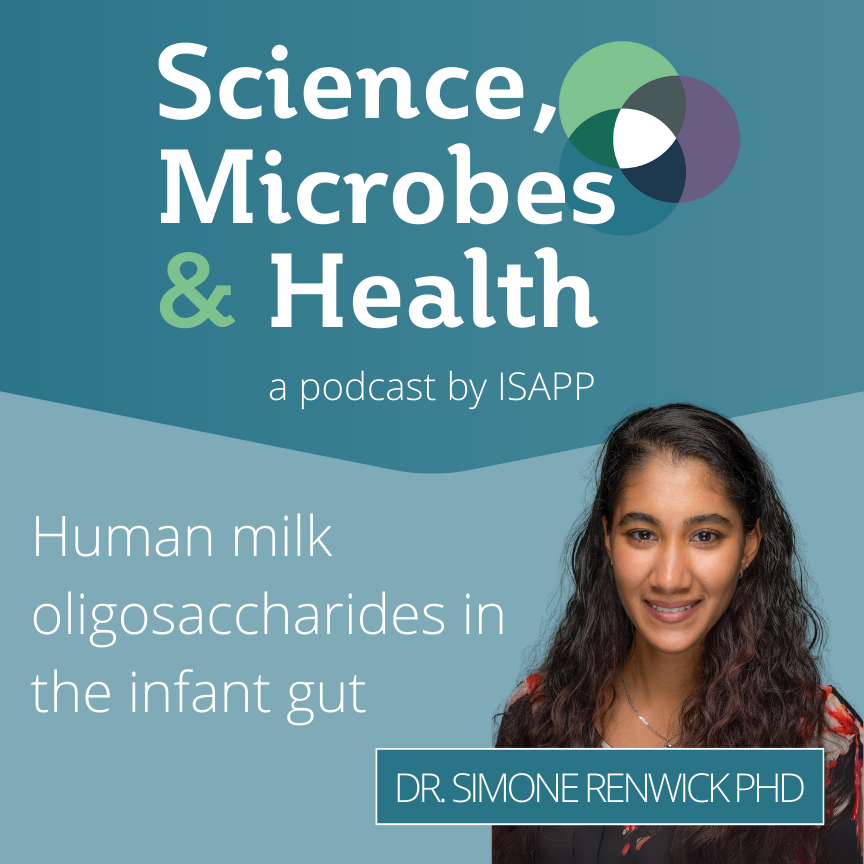
Archive Highlight: Human milk oligosaccharides in the infant gut, with Dr. Simone Renwick PhD
In this episode, the ISAPP hosts discuss human milk and the infant gut with Dr. Simone Renwick PhD from Mother-Milk-Infant Center of Research Excellence (MOMI CORE) at UC San Diego, USA. Dr. Renwick talks about her work investigating how communities of microbes versus individual microbes in the infant gut metabolize human milk oligosaccharide (HMO) structures,… -
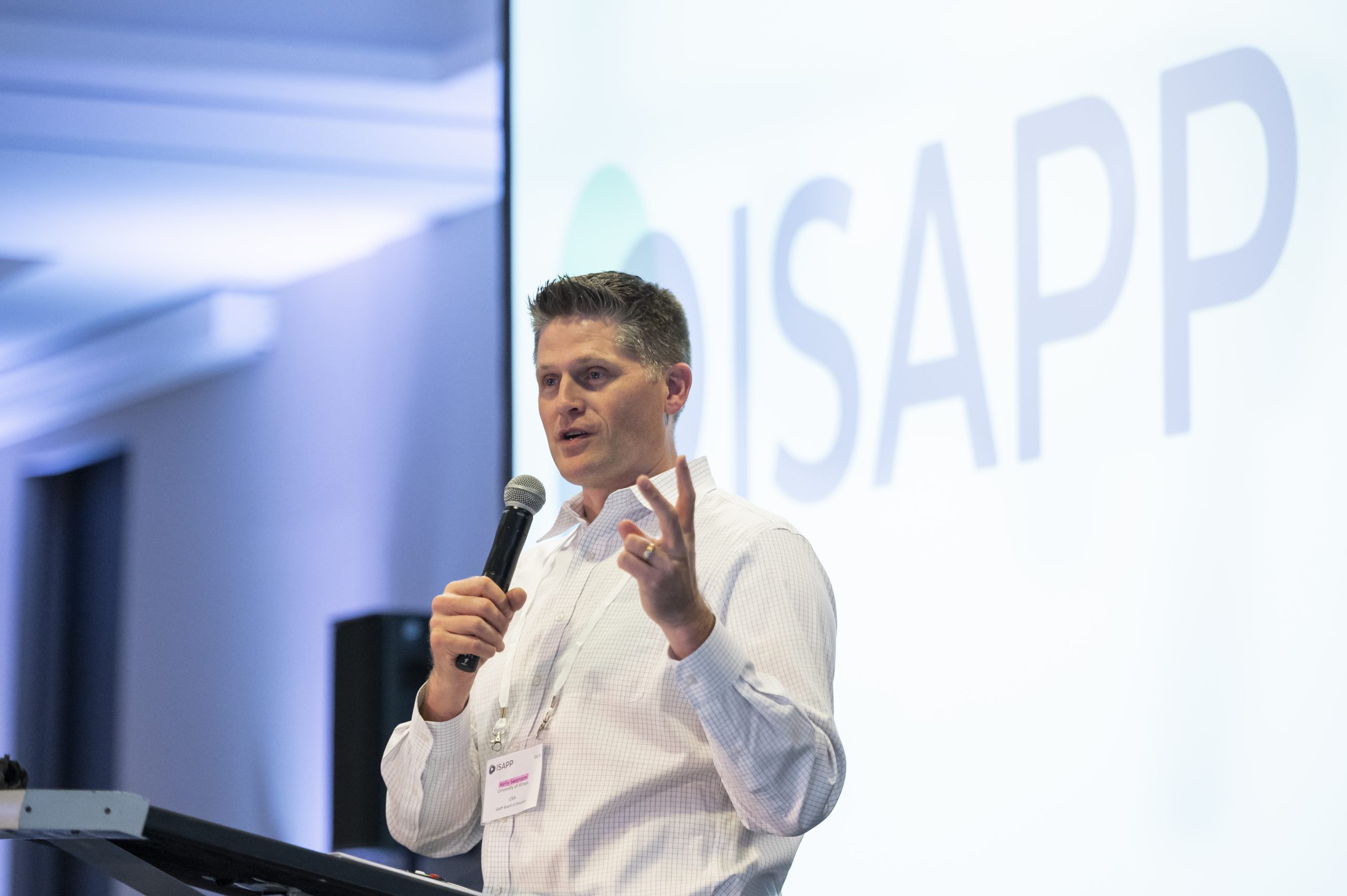
ISAPP Board Scientist Honored by American Society for Nutrition as Inaugural Fellow
Prof. Kelly Swanson PhD from the University of Illinois Urbana-Champaign, a nutrition scientist from the ISAPP board of directors, has… -
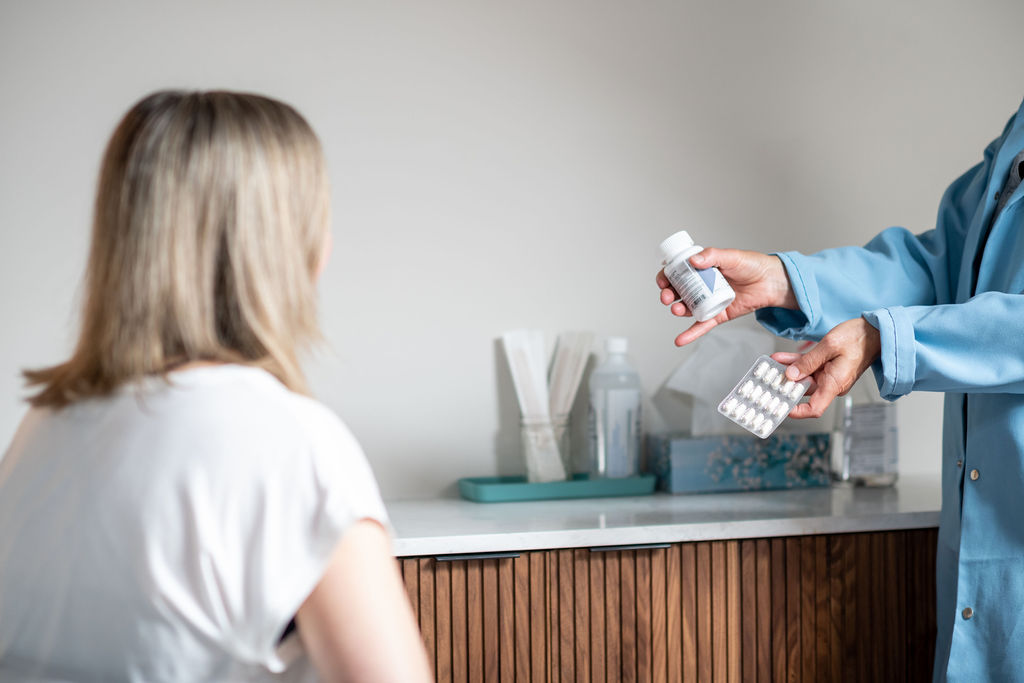
Exploring resources to inform probiotic recommendations: New UK Probiotic Guide Released
Well-informed healthcare professionals know the importance of recommending evidence-based probiotic products to their patients to achieve specific health benefits. But… -
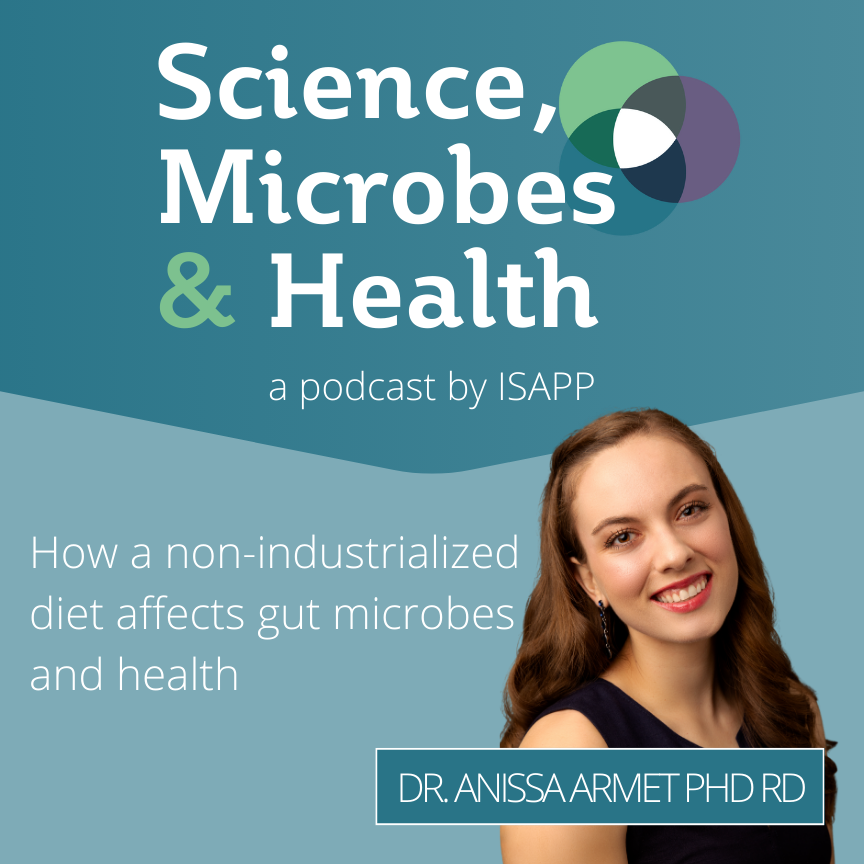
How a non-industrialized diet affects gut microbes and health, with Dr. Anissa Armet PhD RD
This episode features Dr. Anissa Armet PhD RD from the University of Alberta in Canada, speaking about the impact of diet on both the gut microbiota and overall health. Dr. Armet, a registered dietitian and researcher, says the Western diet along with the associated gut microbiome changes have played a role (amongst other things) in… -

How a non-industrialized diet affects gut microbes and health, with Dr. Anissa Armet PhD RD
This episode features Dr. Anissa Armet PhD RD from the University of Alberta in Canada, speaking about the impact of… -
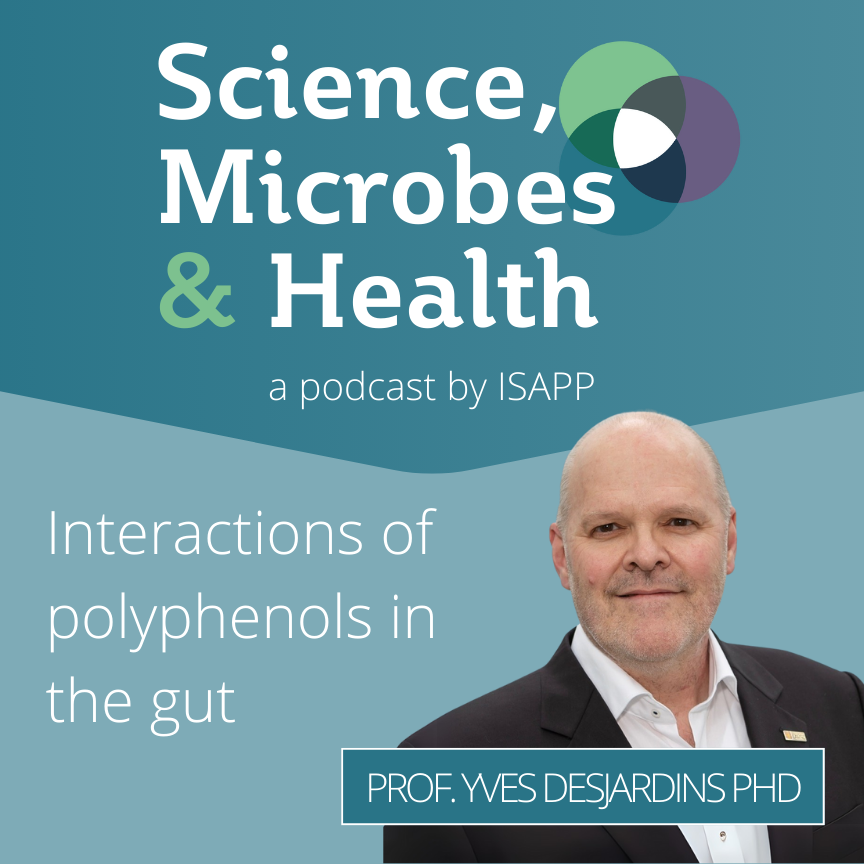
Interactions of polyphenols in the gut, with Prof. Yves Desjardins PhD
This episode features Prof. Yves Desjardins PhD from Laval University in Canada. Prof. Desjardins, an agrologist by training, explains that polyphenols are metabolites synthesized by plants and present in the plant foods we consume. When humans consume polyphenols, we absorb a small fraction (around 5%) of them in the upper gastrointestinal tract, but most of… -
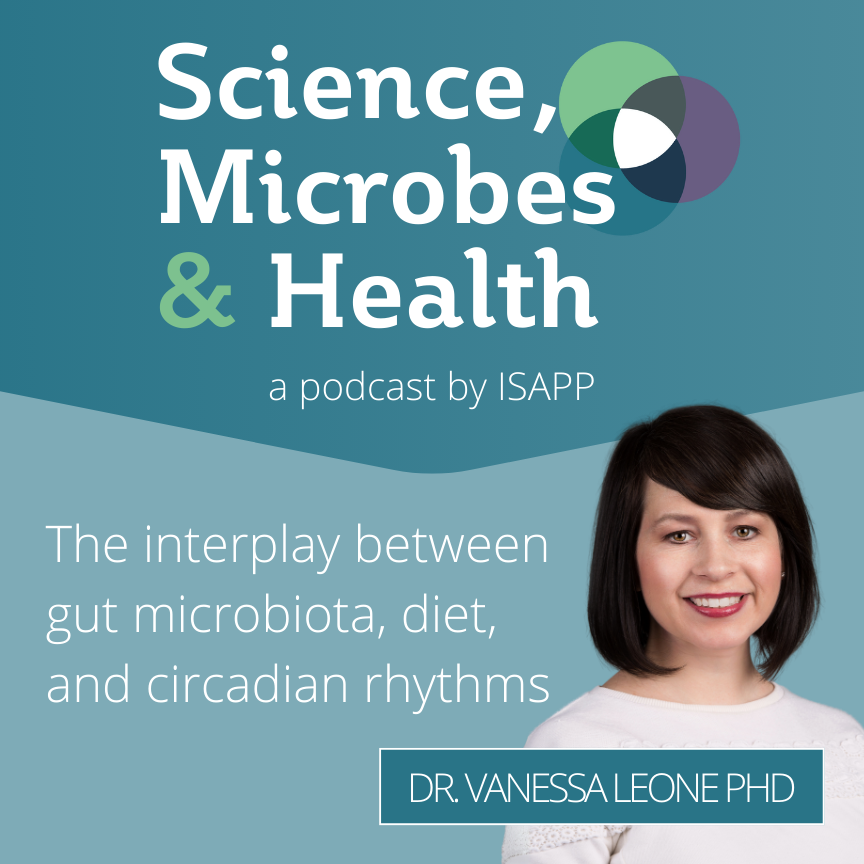
The interplay between gut microbiota, diet, and circadian rhythms, with Dr. Vanessa Leone PhD
This episode features Dr. Vanessa Leone PhD from the University of Wisconsin – Madison on how gut microbes and eating patterns impact the host circadian system and overall health. In mouse models, Dr. Leone has found that in a 24-hour period, minor changes occur in the composition of the gut microbiota, while more important changes… -
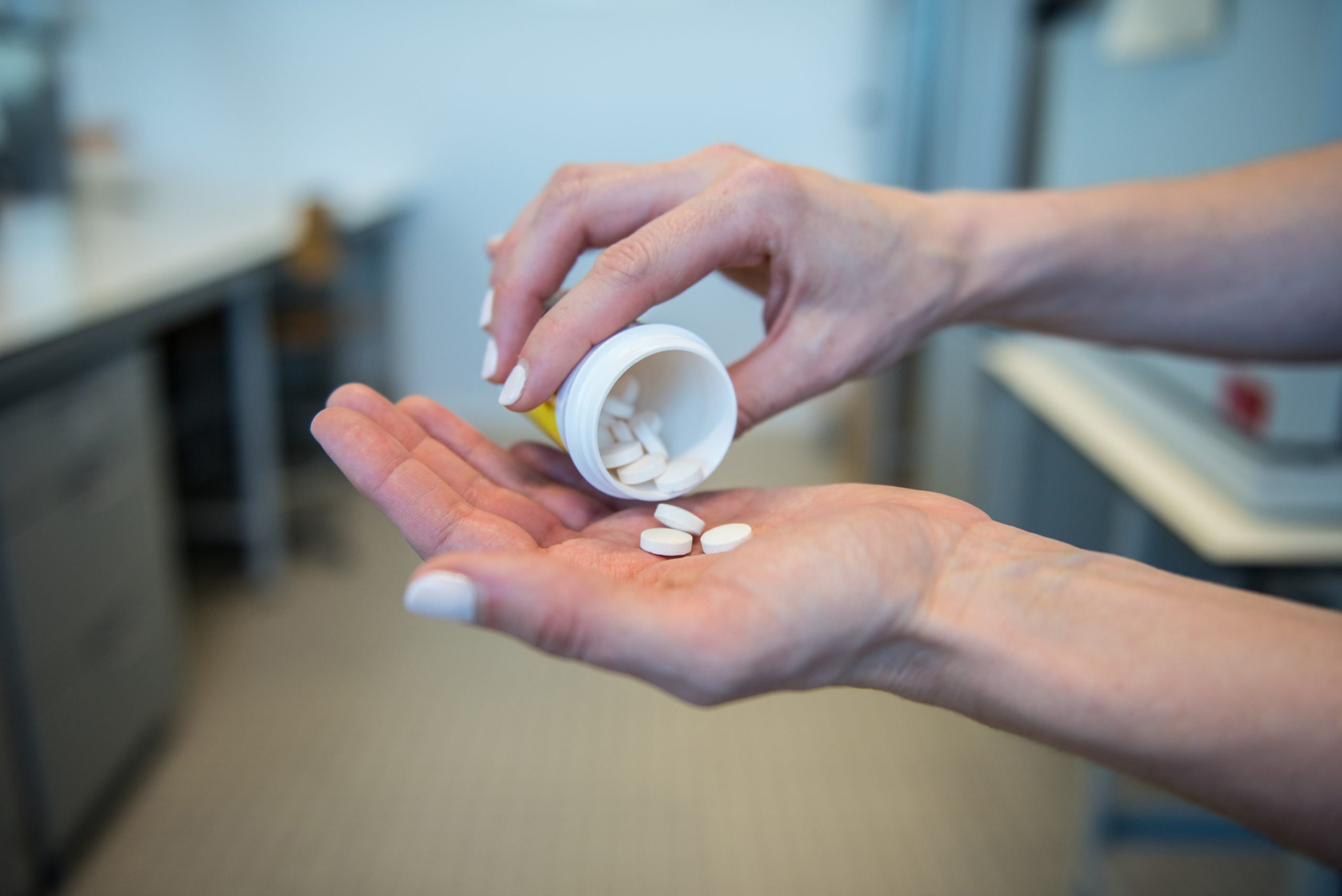
How to respond to the question “Should I take a probiotic?”
With contributions from Prof. Daniel Merenstein MD A Washington Post article published March 11, 2025 by a gastroenterologist addressed a… -

ISAPP’s President Elected to the American Academy of Microbiology
The President of the ISAPP Board of Directors, Prof. Maria Marco PhD, was among the elite group of scientists elected… -
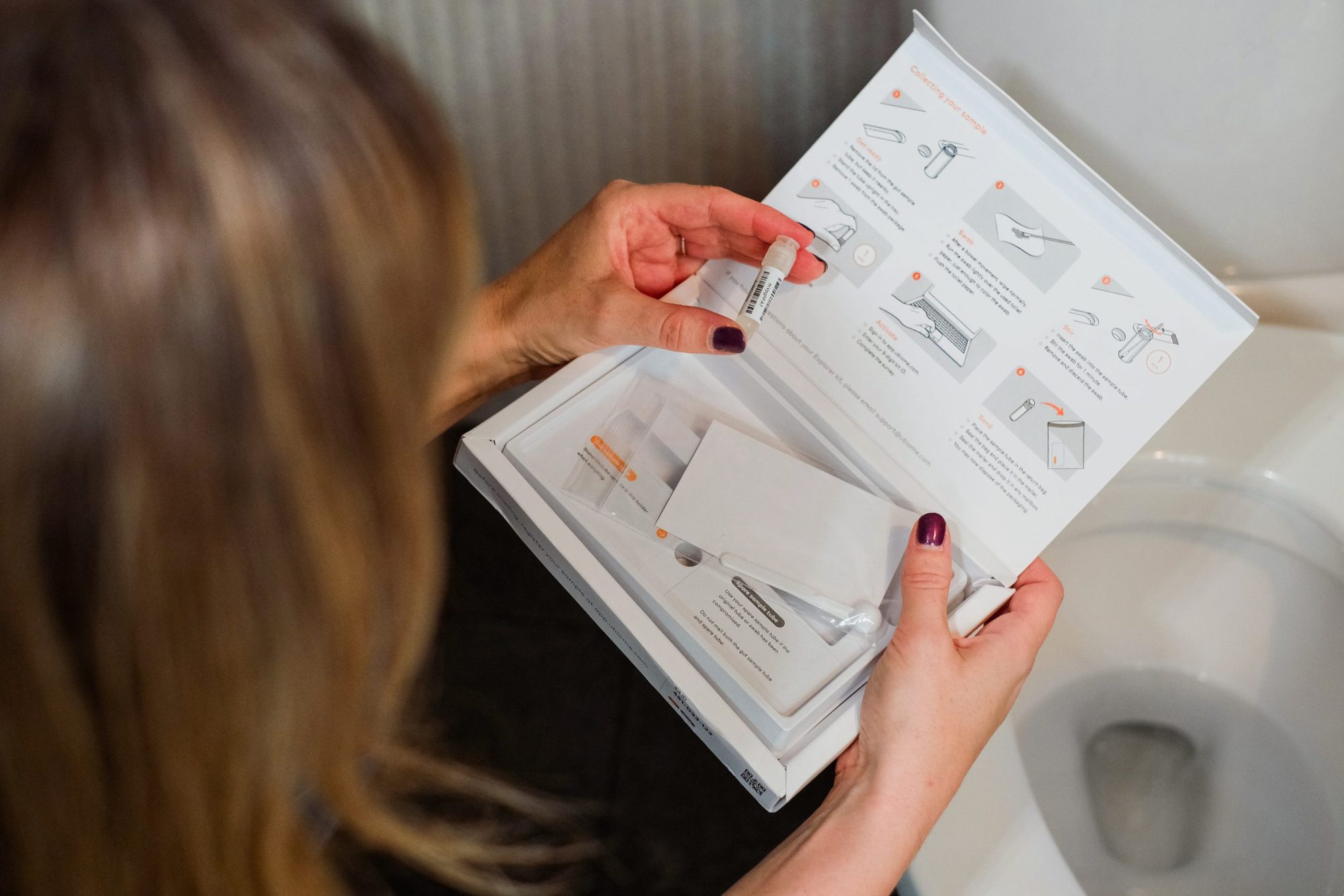
The Promise of Personalized Medicine
While the existence of responders and non-responders are evident in any clinical trial, today’s forward thinkers envision the next logical… -
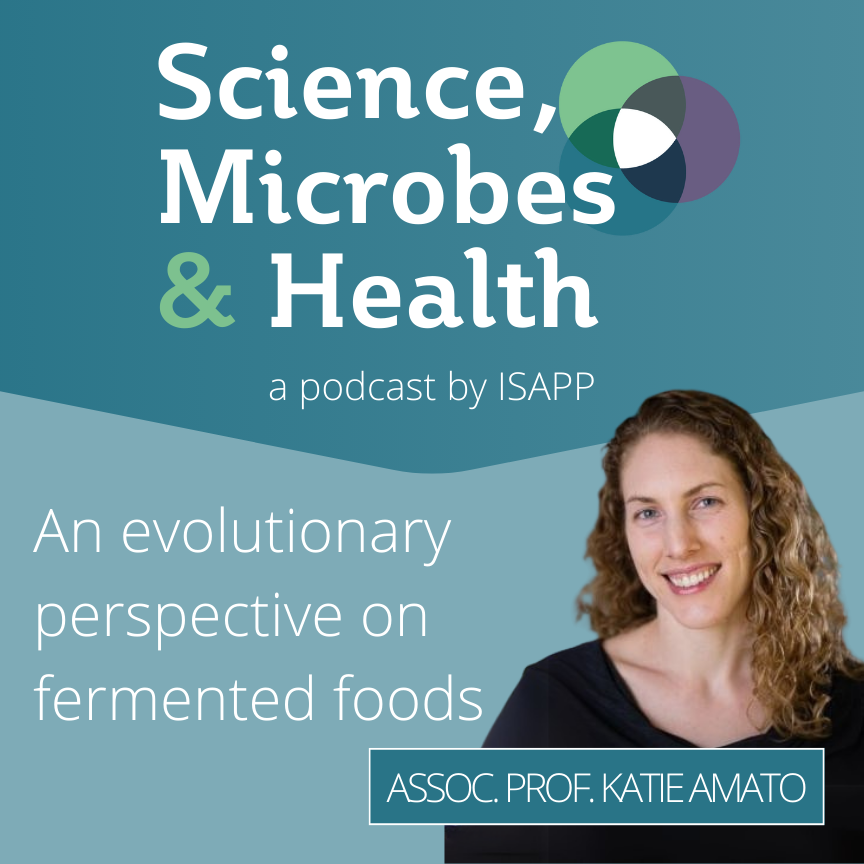
Archive Highlight: An evolutionary perspective on fermented foods, with Assoc. Prof. Katie Amato
Continuing in the series on the latest fermented food science, we are highlighting Episode 9 from our archives. In this episode, the ISAPP hosts talk about fermented foods and non-human primates with Katie Amato of Northwestern University, USA. Amato describes what she has learned from studying the gut microbiota of non-human primates and how it… -
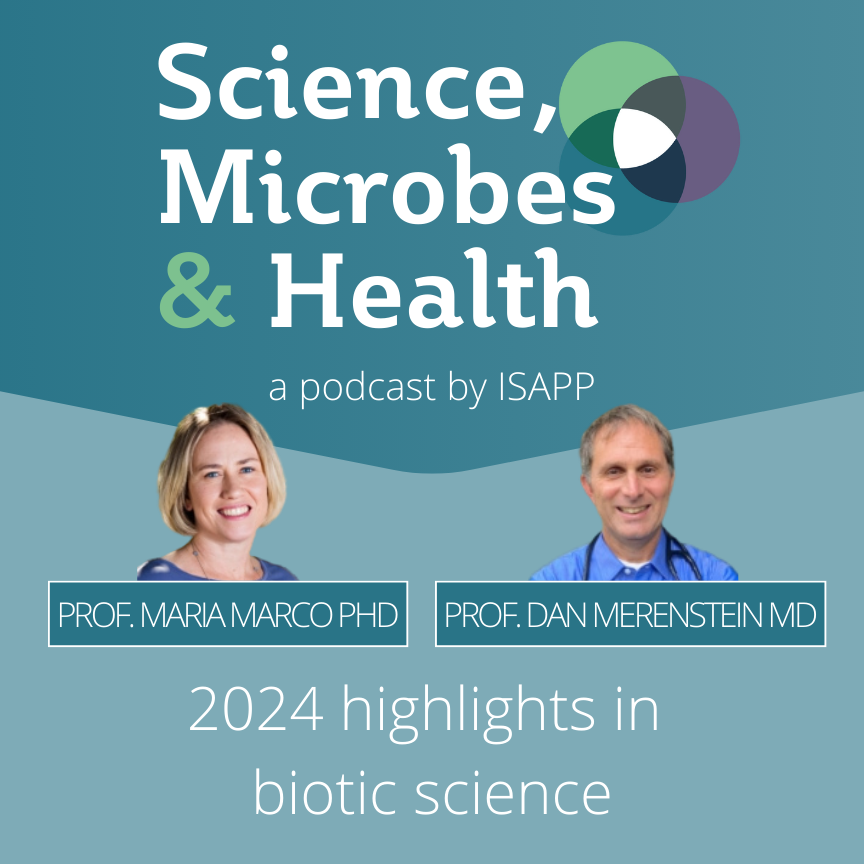
2024 highlights in biotic science, with ISAPP’s current and past Presidents
In this episode, ISAPP’s current President Prof. Maria Marco PhD and past President Prof. Dan Merenstein join the podcast hosts for a conversation about highlights in biotic science from the past year. Prof. Marco points out a paper published in Nature Microbiology, the result of an ISAPP discussion group exploring whether diet may be a… -
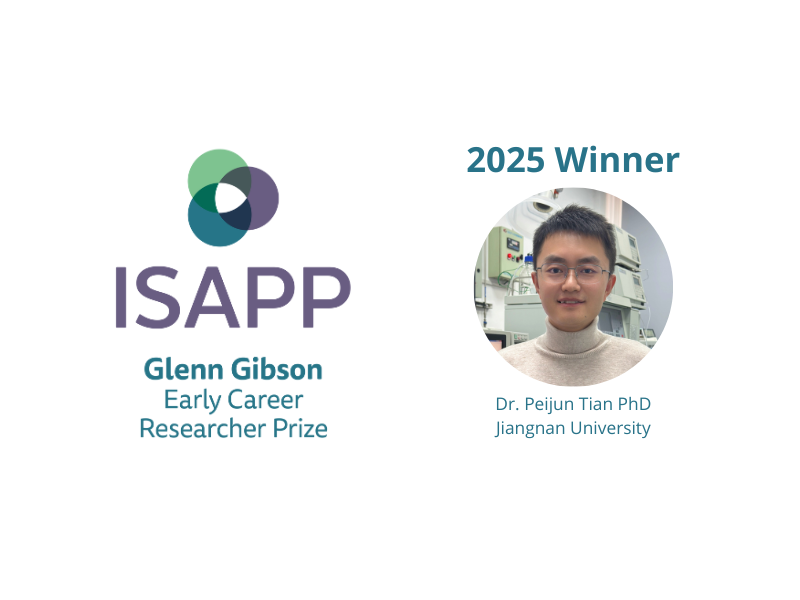
2025 Glenn Gibson Early Career Researcher Award Goes to Researcher in China Focused on Probiotics for Brain Health
ISAPP is pleased to announce that the recipient of this year’s Glenn Gibson Early Career Researcher Award is Dr. Peijun… -
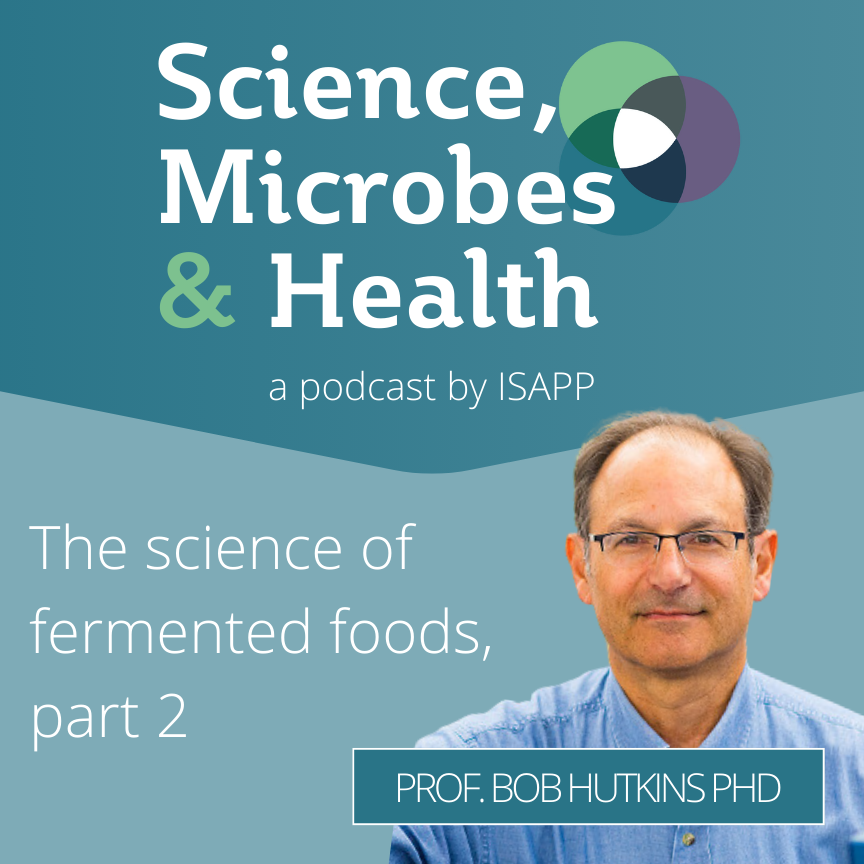
Archive Highlight: The science of fermented foods, part 2, with Prof. Bob Hutkins
Continuing in the series on the latest fermented food science, we are highlighting Episode 3 from our archives. The hosts continue their discussion of fermented foods with Prof. Bob Hutkins, University of Nebraska – Lincoln. Prof. Hutkins elaborates on how the microbes associated with fermented foods may confer health benefits, as well as how food… -
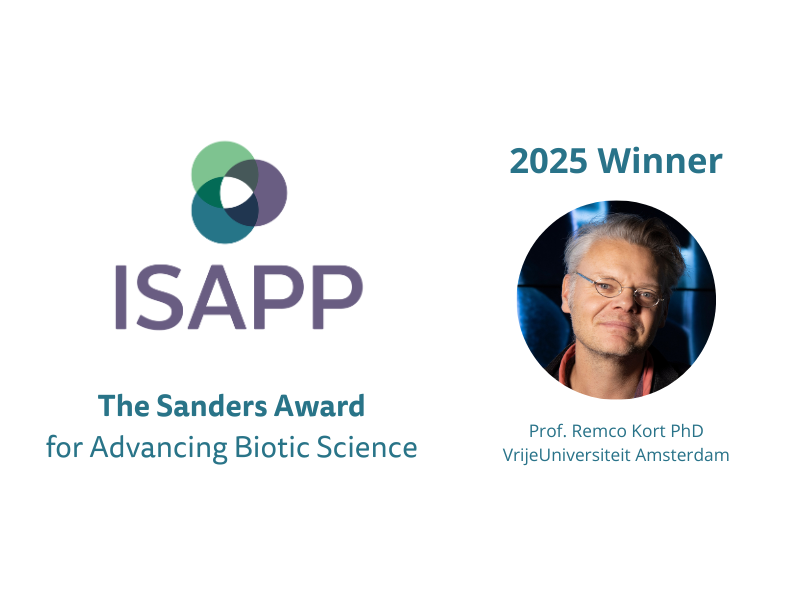
Dutch Microbiologist Passionate About Biotics Applications & Public Outreach Receives ISAPP’s 2025 Sanders Award for Advancing Biotic Science
The ISAPP board of directors is thrilled to announce the winner of the 2nd Sanders Award for Advancing Biotic Science:… -

2024 in Review: Important Advances in Biotic and Microbiome Science
By the ISAPP Editorial Team, with contributions from the ISAPP Board of Directors 2024 was another banner year in the… -
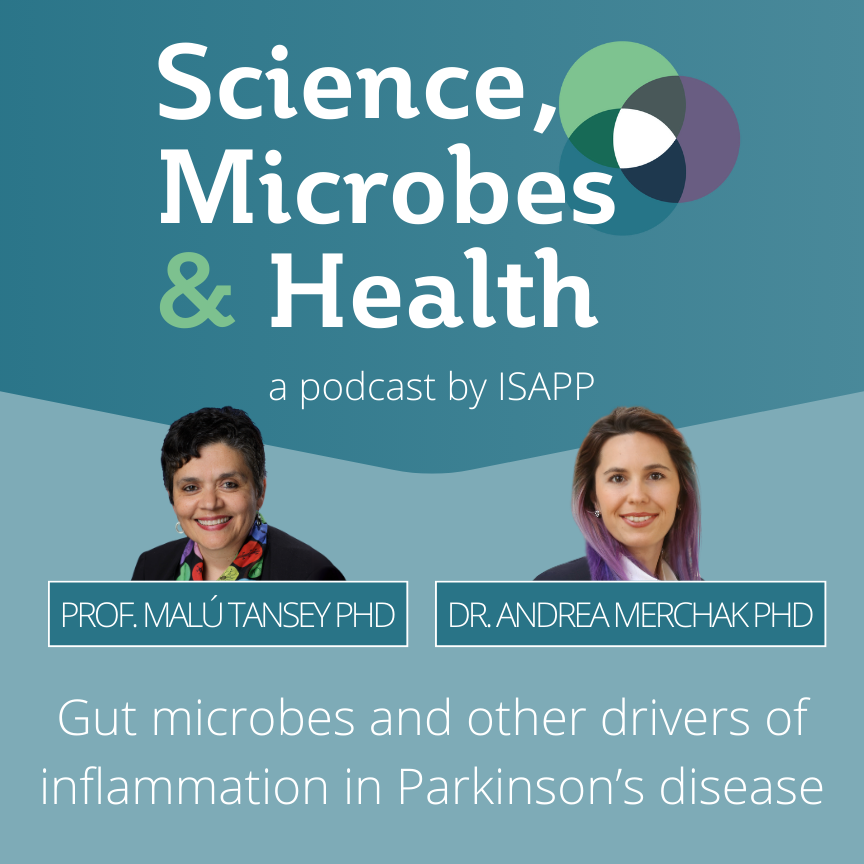
Gut microbes and other drivers of inflammation in Parkinson’s disease, with Prof. Malú Tansey PhD and Dr. Andrea Merchak PhD
This episode features Prof. Malú Tansey PhD and colleague Dr. Andrea Merchak PhD from the University of Florida, USA, discussing neuroinflammation and the role of gut microbes in Parkinson’s disease (PD) and other neurodegenerative diseases. “Inflammaging” tends to occur as aging progresses, but the links that have been made between the gut and the brain… -
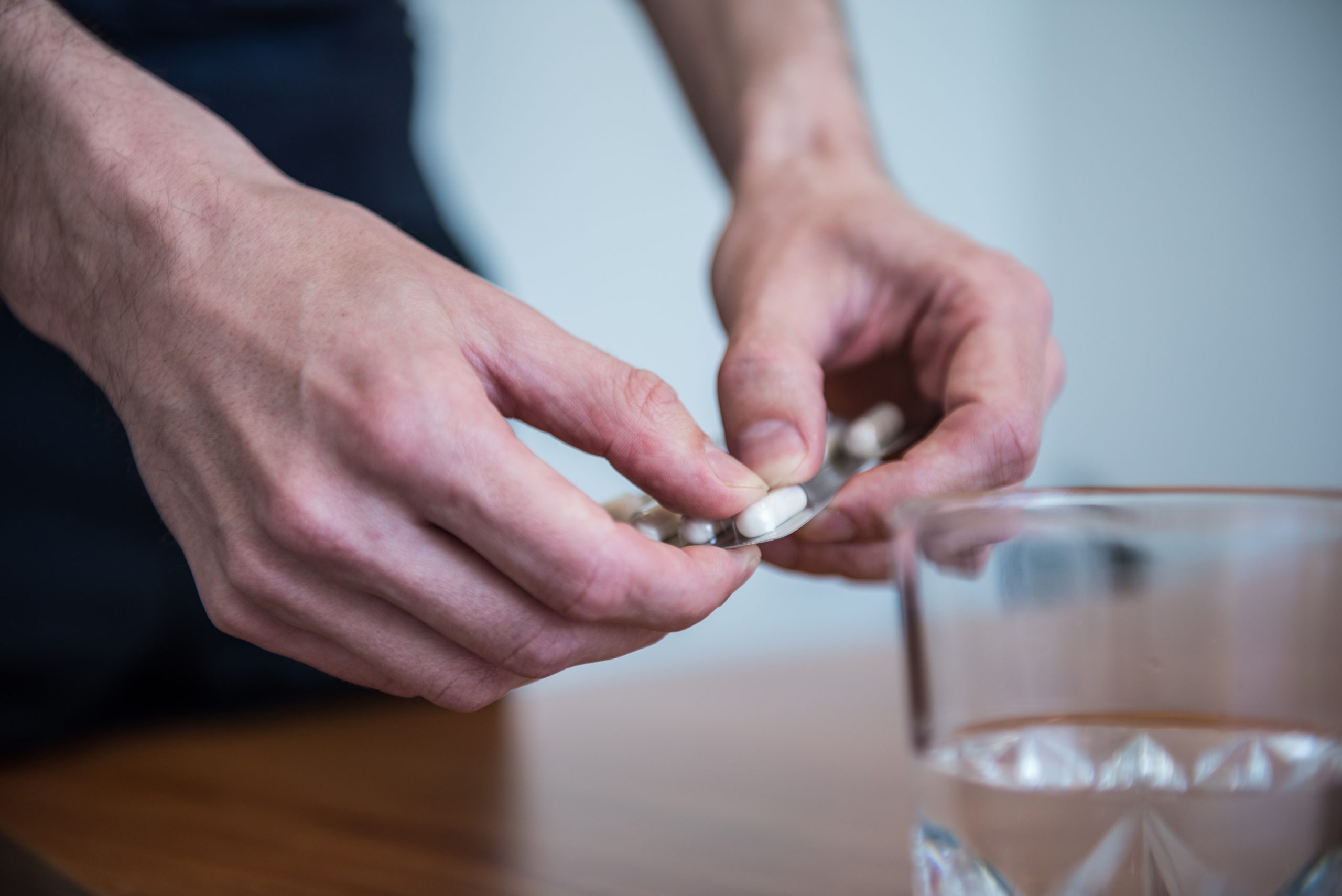
ISAPP panel concludes that more evidence is needed to determine whether probiotics help restore an antibiotic-disrupted microbiota
By Dr. Mary Ellen Sanders PhD, Mary Ellen Sanders LLC, Colorado, USA, Dr. Hania Szajewska MD, Medical University of Warsaw,… -
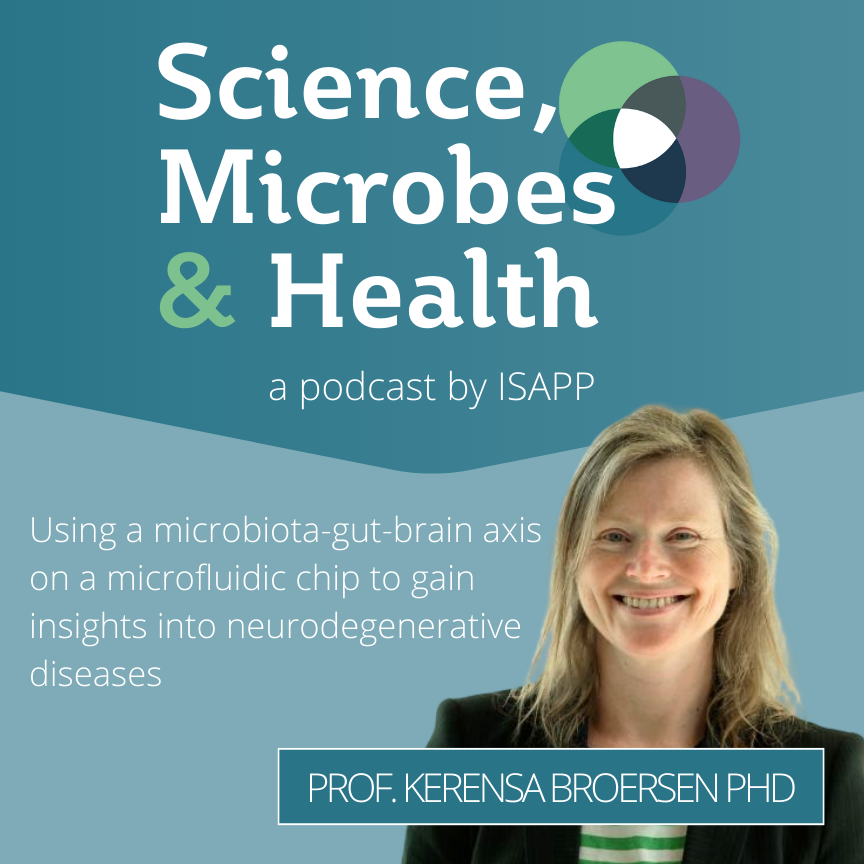
Using a microbiota-gut-brain axis on a microfluidic chip to gain insights into neurodegenerative diseases, with Prof. Kerensa Broersen PhD
This episode features Prof. Kerensa Broersen PhD from University of Twente in the Netherlands, speaking about using an innovative model of the microbiota-gut-brain axis to learn about neurodegenerative diseases such as Parkinson’s disease. Prof. Broersen says that while clinical studies are applicable to human health and animal models have great physiological complexity, her lab focuses… -
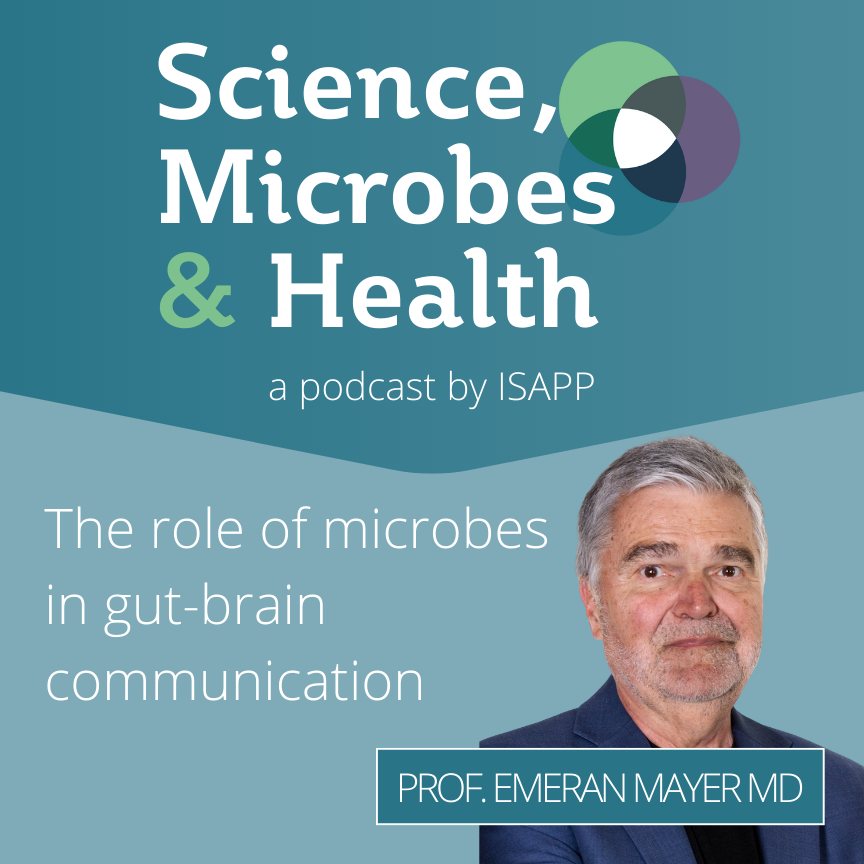
Archive Highlight: The role of microbes in gut-brain communication, with Prof. Emeran Mayer MD
Continuing our series on the microbiota-gut-brain axis, we are highlighting Episode 26 from our archives. In this episode, ISAPP podcast host Prof. Dan Tancredi PhD welcomes guest Prof. Emeran Mayer MD, a gastroenterologist and researcher at University of California Los Angeles. They talk about the microbiota-gut-brain axis, covering its evolutionary origins and how this complex…